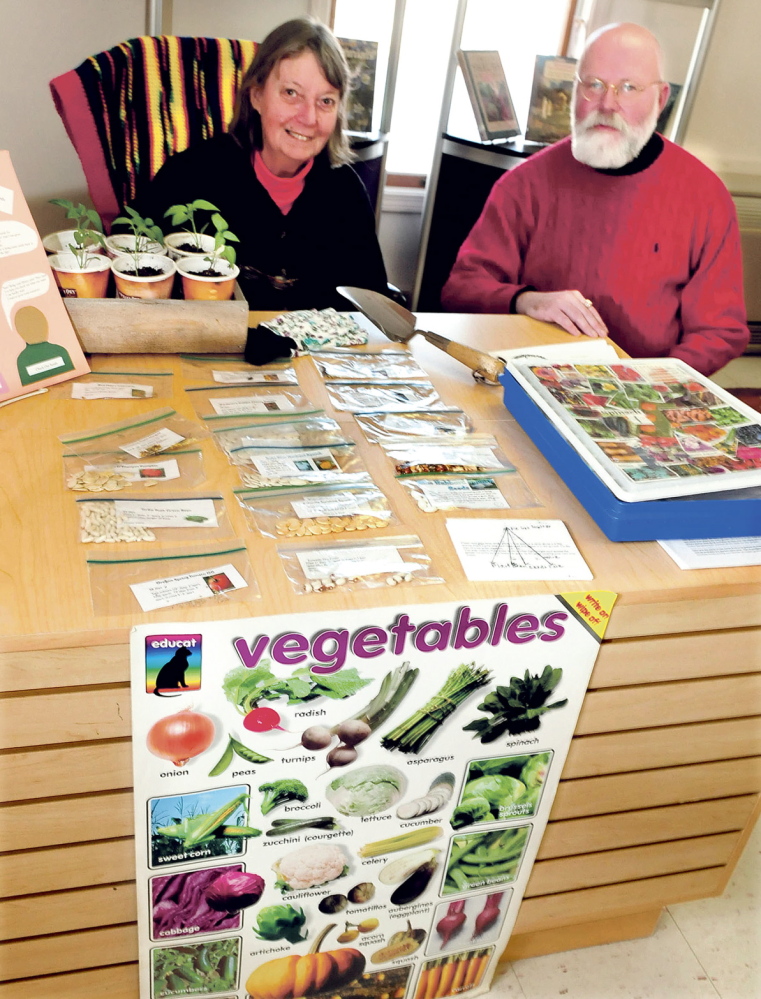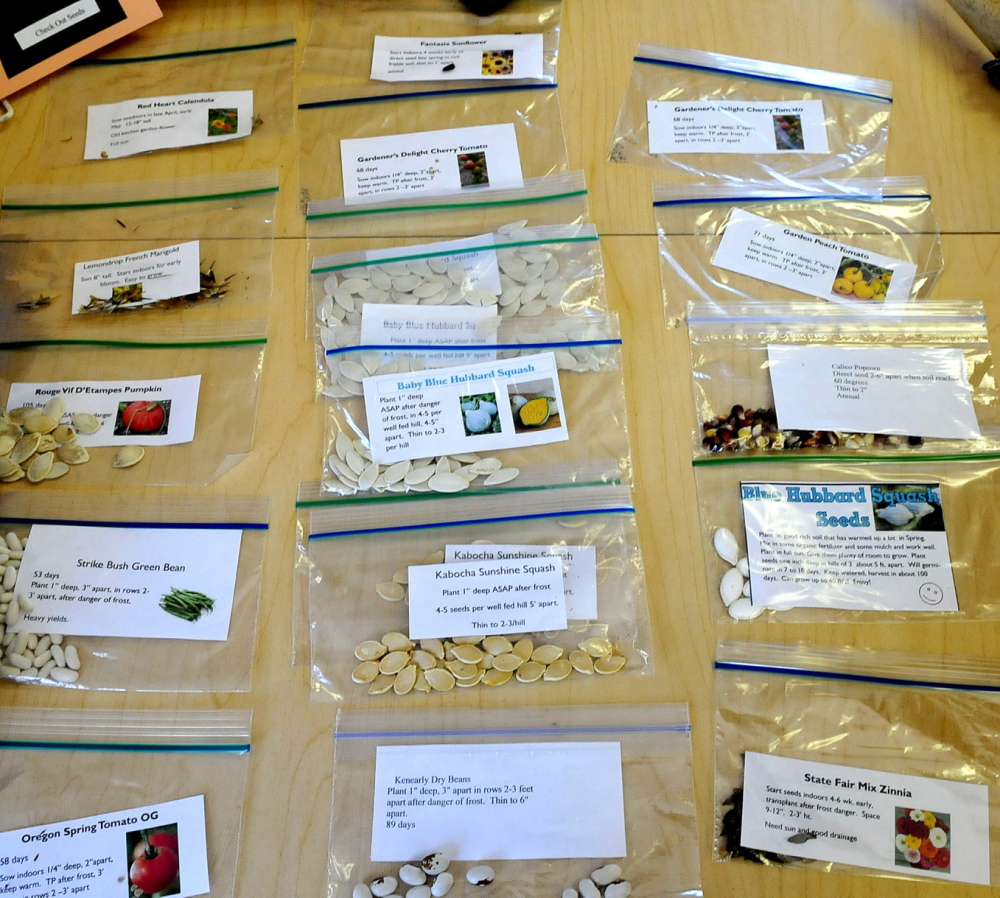NORRIDGEWOCK — To gather the toppings for a homemade pizza, look no farther than the local library.
The seeds to grow green peppers, tomatoes, onions and oregano are available to checkout with a library card, as is the recipe for a pizza and instructions for planting the vegetables.
The project is part of the year-old Check Out Seeds program at the Norridgewock Public Library. Library staff are promoting the program this spring, with the angle that it will help people create a “pizza garden.”
It’s also an example of the growing popularity of seed banks at public libraries across the country. There is no national data on the number of seed lending libraries, but there are at least 32 public libraries across the country that offer seed lending programs, according to the American Library Association.
Seed Savers Exchange, a nonprofit organization dedicated to the preservation of heirloom seeds, estimates the number to be even greater — around 200 seed banks.
The concept is that visitors to the library who would normally borrow books or DVDs with the library cards can also borrow seeds. After planting the flowers or vegetables, card holders harvest new seeds in the fall and return them to the library, helping to grow a collection of seeds.
Dawn Smith, 70, a Norridgewock resident, said she used the program last year to grow a new flower called Red Calendula, a variety of the traditional marigold. She thought it would be a fun way to try growing a plant she had never heard of.
“I didn’t want to be greedy so I just picked out one plant for the fun of it,” Smith said. “I had so many seeds I was able to save some for myself as well as bring some back to the library.”
The goals of the program include making fresh vegetables and flowers accessible to everyone, teaching children about plants and gardening and encouraging people to get outdoors, said Sallie Wilder, chairwoman of the library board of trustees and a founder of the project.
“It’s kind of a fun thing for the library to do,” Wilder said. “We’re always trying to get people to come in, and most of the time they’re interested in computers and games. We want to encourage reading and other activities.”
The library seed bank, which was started in 2013 with a donation of seeds from Fedco, a Waterville cooperative seed and garden supply company, is on a small table where seeds are prominently displayed in small plastic bags that include a description of the plant and how to care for it. There are more than 40 varieties of vegetables and flowers, including tomatoes, zinnias, marigolds, zucchini and beans.
The table is near the entrance to the library and is surrounded by a display of books on gardening. Last year about 15 people used the seed bank, but Wilder said she hopes more people will take advantage of the program this spring.
“You don’t have to have a garden to grow seeds. A window box or planter can work fine,” she said, pointing to small red pepper plants she has started in plastic foam cups.
Last year, the library launched the program with instructions on how to create a bean tepee, a method of growing legumes on poles, and had the seeds available for residents to bring home.
This year, the theme is pizza garden, with instructions for growing herbs like oregano and basil as well as vegetables and the seeds to start them. The library will also be collaborating with the Somerset County Cooperative Extension to start a pizza garden as part of a summer program for children.
“It’s a tradition we’ve been doing since the beginning of agriculture, and people are starting to re-connect with that tradition,” said Steve Carlson, communications coordinator at the Seed Savers Exchange in Decorah, Iowa.
A lot of times when people plant their own gardens, they don’t harvest the seeds in the fall and instead buy new seeds, but the seed library relies on that tradition, said Carlson.
“Over the past three years it’s really picked up incredibly,” Carlson said. “We’re really in support of the movement because not only is it a great way to get people moving and outdoors and give them access to fresh food, but it’s a way to preserve agricultural diversity and keep seeds in the hands of the community.”
Rachel Ohm — 612-2368 rohm@centralmaine.com
Send questions/comments to the editors.





Success. Please wait for the page to reload. If the page does not reload within 5 seconds, please refresh the page.
Enter your email and password to access comments.
Hi, to comment on stories you must . This profile is in addition to your subscription and website login.
Already have a commenting profile? .
Invalid username/password.
Please check your email to confirm and complete your registration.
Only subscribers are eligible to post comments. Please subscribe or login first for digital access. Here’s why.
Use the form below to reset your password. When you've submitted your account email, we will send an email with a reset code.